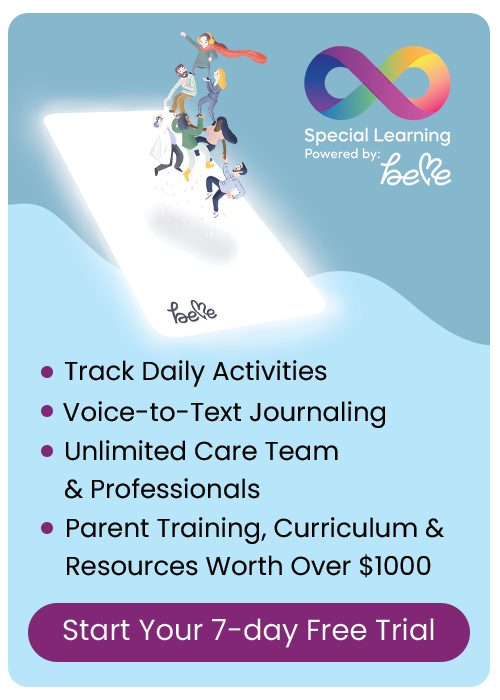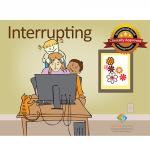Blog Categories
- ADHD
- Applied Behavior Analysis
- Autism Awareness
- Autism Service Providers
- Case Studies
- Dignosis
- Classroom Management
- Credentials
- Ethics
- Family Matters
- FAQs About LIVE Events
- Financial Planning
- Holiday Planning
- IEP's
- Panelists
- Private Equity in Autism & ABA Industry
- Psychopharmacology
- Sensory Processing Disorder
- Speech and Communication
- Subject Matter Experts
- Summer Planning
- Transition Planning
4 Ways For Parents To Cope with Stress

At Step by Step Academy, Julie provides case management services and individual and group counseling to adolescents with Autism and their families. Her responsibilities also include development and delivery of training programs for parents and staff.
Julie graduated from Ohio State University in 2000 with a Bachelor’s Degree in Psychology. In 2003, she earned her Master’s Degree in Social Work (with a Clinical concentration and School Social Work specialization). Julie is a Licensed Independent Social Worker Supervisor (LISW-S) and holds a School Social Work (SSW) License from the Ohio Department of Education.
4 Ways For Parents To Cope with Stress
Meeting the needs of any child can be nerve-racking at times and parents of children with Autism are especially at risk of feeling stress and anxiety.
A study published in 2009 by Marsha Mailick Seltzer found that mothers of children with autism experience stress similar to that of combat soldiers. How a father copes is often overlooked in the research; however, recent findings suggest that 30% of these men are depressed to the point that they are in need of professional help.
While there is certainly no quick fix to eliminate stress completely, feeling more in control of you and your child’s life is half the battle. Here are some techniques to cope with your stress and anxiety:
1. Put Yourself First
This concept seems so counter to the message that society sends to parents. And yet time and time again parents learn that their own mental health can be as important (or even more important) then that of their child’s when it comes to coping with stress.
Make sure to eat a healthy diet, get exercise (even if it’s a short walk around the block when your little one is asleep), take vitamins and have a support team in place. As much as time allows try to continue with at least some of the hobbies and interests you had before becoming a parent.
2. Have Realistic Self-Expectations
You need to remember that there will be both good days and bad days. Allow yourself to fully feel the natural emotions that come with both. Most parents will admit that while they always love their child there are times that they don’t particularly like him or her. This is no different for parents of children that are typically developing. Know that there are days when your child doesn’t particularly like you either but that’s ok.
Allow yourself to be human and don’t set up unrealistic expectations about being the “perfect parent”.
3. Accept Help
They say that “takes a village” but many parents of children with Autism often feel like it takes an army. Many are so overwhelmed by their child’s needs that they feel it is easier to do it all themselves than to accept help. Parents often wonder “Where do I begin?” Have faith that people truly do want to help but you need to know where to start and what to ask.
Create a list of simple tasks that friends and family can do to lessen the load-grocery shopping, picking up prescriptions, doing some basic yard work, cleaning out the garage. Anything you can cross off your to-do list means more quality time with your child.
If your child has a typically developing sibling make sure to include him or her in providing assistance, but make sure that this is done in a positive manner. Often siblings experience stress not because their brother or sister has a disability but because they feel powerless to help. Encourage positive interactions that foster self-esteem in your child. View him or her not as a caregiver or a helpless bystander but as a highly motivated teacher who can model appropriate behavior.
4. Stay Organized
Many parents report that being organized is the one of the best defenses against stress. Set up a system that works for you and stick to it. Use a simple three-ring binder with subject tabs to organize reports, data and notes for each professional involved in your child’s care. Every time you attend an appointment jot down the date, time and some basic notes.
Don’t be afraid to ask a lot of questions, if you don’t understand a term or acronym being used, jump in and get clarification. Often, professionals unintentionally come across as being intimidating because of the casual manner in which they use language that the average person isn’t familiar with. But a gentle reminder that you are unfamiliar with a term will allow them to remember that they are not speaking to another colleague and get them to talk to you in a manner that you will understand. Remember, they want you to be informed and knowledgeable. It helps the team become more cohesive so that you are all working in collaboration for the benefit of your child.
Check out the article “The Importance of Support Groups” in the Special Learning Resource Section: https://special-learning.com/article/the_importance_of_support_groups.
I hope you found these tips useful. Remember that there will always be special challenges in raising a child with Autism but how you chose to cope can make a world of difference.
RECOMMENDED PRODUCTS
Adolescence and Transition Bundle
Interrupting Social Story Curriculum





